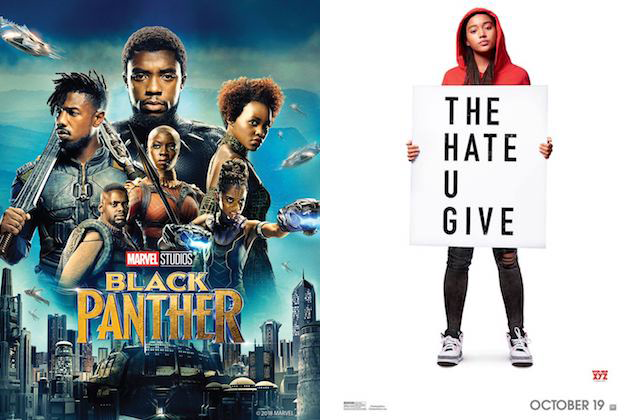This year presented a bumper crop of narrative films from Black and Brown artists—including "Black Panther," "The Hate U Give," "Blindspotting," "BlacKkKlansman" and "Monsters and Men”—that centered racial justice themes. Many of these movies earned critical and popular acclaim for their layered depictions of Black peoples’ lives under White supremacy. Reggie Ugwu illuminates these movies’ successes and pitfalls in an article for The New York Times yesterday (October 24).
rnt
Kept thinking about this year’s crop of racial justice movies and the hazardous work of fanfic-ing the history we’re living through. Here’s a new essay on superheroes, revenge fantasies and Hollywood endings vs hellish times. https://t.co/22TQEeQeRs
rnt— Reggie Ugwu (@uugwuu) October 24, 2018
rn
rntIn "The Unreality of Racial Justice Cinema," Ugwu argues that these films typically explore painful subjects like police violence and White hate with an eye toward cathartic character transformations. He writes that these movies, despite addressing “the long-overdue demand for movies about the Black experience," struggle to accurately reflect the bleakness of fighting contemporary racism.
He writes about the dangers of “The Hate U Give" and "Monsters and Men" depicting Black teenagers transforming into warriors against racism:
rnt
It’s possible—and, the framing implies, appropriate—to read both of these endings optimistically. They’re social justice versions of the archetypal superhero origin story, ones that feature self-possessed Black protagonists in a medium in which those have been too rare for too long.
t
But in the films’ efforts to imply a satisfying arc to the Reverend Dr. Martin Luther King Jr.’s moral universe, they end up endorsing nearly as much magical thinking as Marvel’s cinematic one.
t
They ask that we view the conscription of young bodies into ancient conflict as a point of hope instead of shame; that the oppressed aspire to be superhumans rather than the normal kind; that we not dwell on what ultimately happened to King, or, for that matter, even to Kaepernick. It’s noble for a person, in full knowledge of the terrifying odds, to commit her life to the enduring cause of racial justice. But we can be sure we’ve lost the plot when that commitment substitutes for the thing itself.
Ugwu also discusses how the supernatural "Black Panther" and "Get Out" fall into similar traps as their realist counterparts:
rnt
The more far-flung the fantasy, the more natural it may be for audiences to suspend disbelief.
t
[Erik] Killmonger’s crusade for violent retribution in Ryan Coogler’s “Black Panther” (a racial justice film that features both revenge and bona fide superheroes), and Chris’ bloody rampage at the end of Jordan Peele’s “Get Out,” bid for our sympathies from a parallel universe, free from the meddlesome gravity of our own inequitable one.
t
In that context, the movies’ resolutions, however contrived, may feel less cheap and more like a bargain. In lieu of either factually representing or making sense of the world, they invite us to escape it.
Read the article in full at NYTimes.com.
